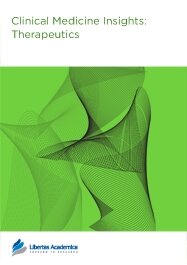

Publication Date: 31 May 2011
Type: Review
Journal: Clinical Medicine Insights: Therapeutics
Citation: Clinical Medicine Insights: Therapeutics 2011:3 221-232
doi: 10.4137/CMT.S3083

Type 2 diabetes mellitus (T2DM) is a chronic, progressive metabolic disorder that is associated with long-term microvascular (retinopathy, neuropathy and nephropathy) and macrovascular (myocardial infarction, stroke, peripheral arterial disease) complications. Both the prevalence of T2DM and the cost of its long-term complications have driven the focus and emphasis on treatments aimed at reducing hyperglycemia and controlling hypertension and dyslipidemia while minimizing hypoglycemia and weight gain. Exenatide twice daily, the first GLP-1R agonist approved by the US Food and Drug Administration (FDA) and European Medicines Agency (EMEA), has been shown to reduce hemoglobin A1C, lower fasting and postprandial plasma blood glucose concentrations as well as reduce body weight without causing significant hypoglycemia. However, its current formulation requires twice daily subcutaneous injections and does not provide continuous GLP-1R activation. Therefore, a long-acting release form of exenatide has been developed for use as a once-weekly injection, providing for convenient administration and continuous GLP-1R activation. This review covers the currently published data on this new formulation including mechanism of action, pharmacokinetics, efficacy and comparison trials to other commonly used anti-diabetic agents.
PDF (583.50 KB PDF FORMAT)
RIS citation (ENDNOTE, REFERENCE MANAGER, PROCITE, REFWORKS)
BibTex citation (BIBDESK, LATEX)

My experience with Libertas Academica was an extremely positive, satisfying and rewarding one. The process was exceptionally smooth, the author interface unusually user-friendly, and the editorial team unbelievably supportive. Overall, I thoroughly enjoyed my publishing experience with Libertas Academica and would gladly welcome the opportunity to publish with them again. Thank you for such a painless and gratifying publication process!

All authors are surveyed after their articles are published. Authors are asked to rate their experience in a variety of areas, and their responses help us to monitor our performance. Presented here are their responses in some key areas. No 'poor' or 'very poor' responses were received; these are represented in the 'other' category.See Our Results
Copyright © 2013 Libertas Academica Ltd (except open access articles and accompanying metadata and supplementary files.)
Facebook Google+ Twitter
Pinterest Tumblr YouTube